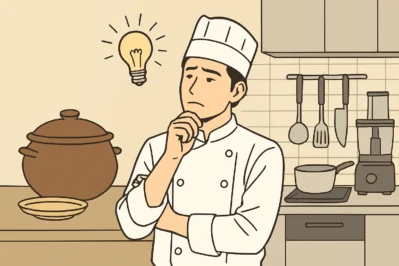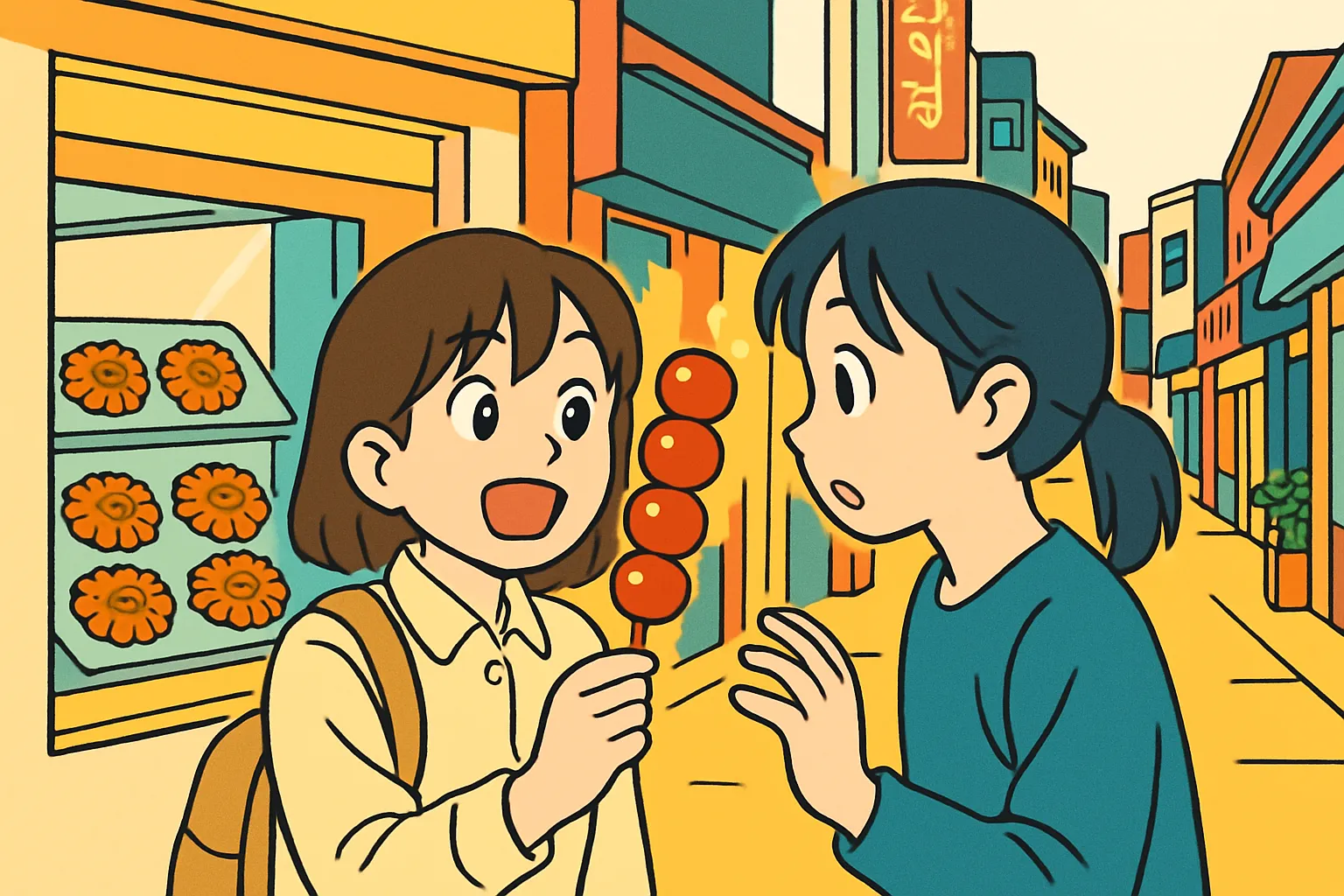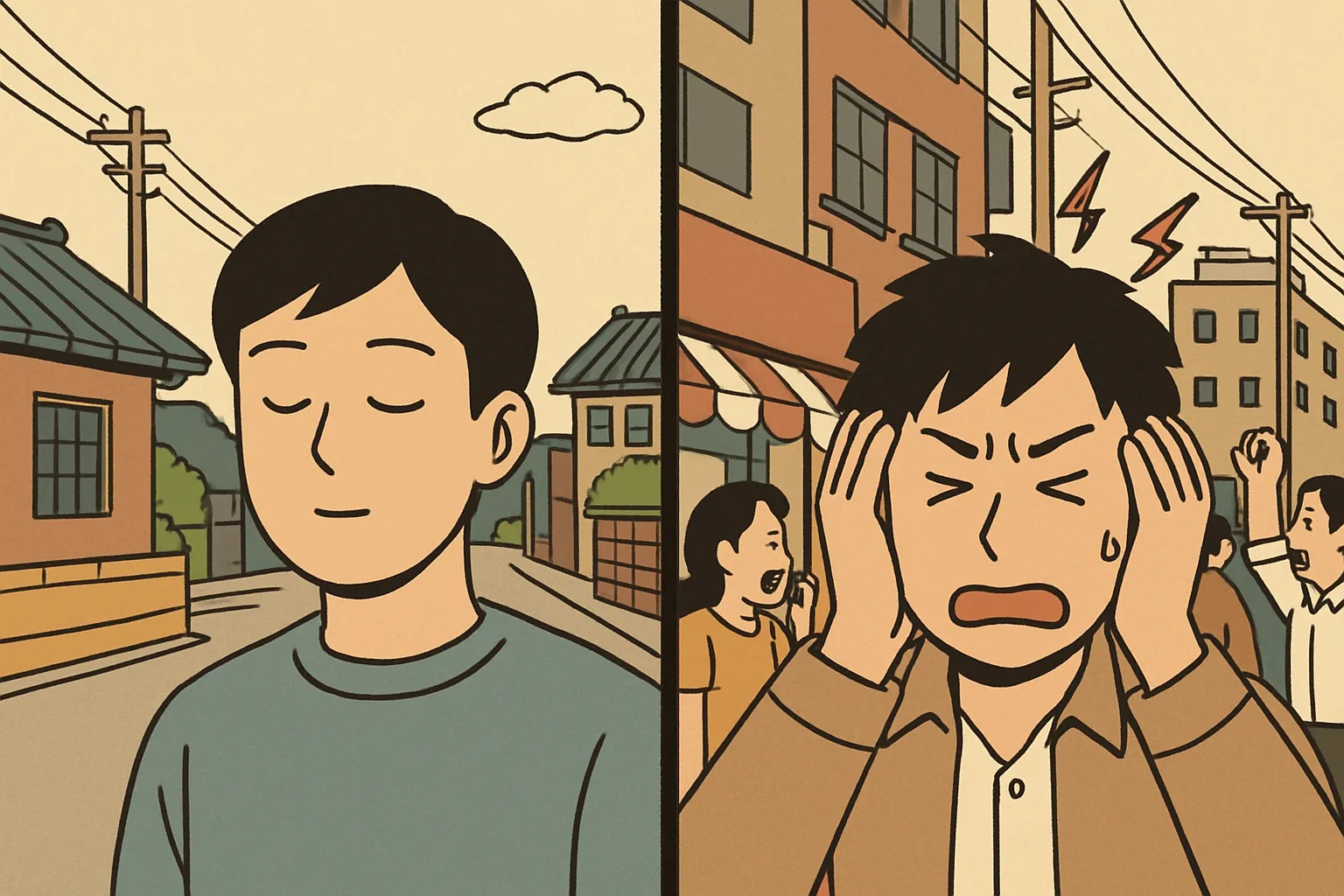Decoding the Masters: Analyzing Top Korean Chefs’ Philosophies
Hello! This is [Maeil Hangul], here to upgrade your Korean skills to a gourmet level!
Have you ever watched a dish being prepared and thought, “That’s not just food, that’s art”? Today, we’re moving beyond simple descriptions like “맛있어요!” (It’s delicious!). We’re going to equip you with the sophisticated language needed to analyze and discuss the deep culinary philosophies of famous chefs, just like a professional food critic.
Lately in Korea, cooking shows and ‘chef-tainment’ are more popular than ever. It’s no longer just about the recipe; viewers are captivated by the chefs’ stories, their unique perspectives on ingredients, and their artistic vision. This has elevated the conversation around food to a more intellectual and philosophical level. So, let’s learn the vocabulary to join in!
Core Expressions for the Culinary Critic
Here are four key expressions that will allow you to discuss a chef’s philosophy with depth and precision.
1. -에 입각하여 (e ipgak-hayeo)
- English Meaning: Based on / Grounded in
- Detailed Explanation: This is a formal, high-level expression used to indicate the foundational basis of a thought, theory, or action. It carries more weight and intellectual nuance than the more common
-을/를 바탕으로. When you say a chef’s cooking is철학에 입각하여(grounded in philosophy), you are highlighting that their work is built upon a deep, systematic set of principles. It’s the perfect phrase for academic or critical discussions.
2. 궤를 같이하다 (gwe-reul gachi-hada)
- English Meaning: To be in the same vein as / To share a common thread with
- Detailed Explanation: This is a wonderfully sophisticated phrase for making comparisons.
궤(gwe) means ‘track’ or ‘orbit,’ so the literal meaning is ‘to share the same track.’ You use it to say that two seemingly different things share a fundamental principle, direction, or characteristic. For example, you could say two chefs, one French and one Korean,궤를 같이하다because they both prioritize ingredient seasonality.
3. 고유의 정체성 (goyu-ui jeongche-seong)
- English Meaning: Unique identity / Inherent identity
- Detailed Explanation: This phrase is essential for describing what makes a chef, or their cuisine, special.
고유(goyu) means ‘inherent’ or ‘unique,’ and정체성(jeongche-seong) means ‘identity.’ Together, they emphasize a distinct, original character that cannot be easily replicated. It points to the soul or essence of their culinary world.
4. 재해석하다 (jaehaeseok-hada)
- English Meaning: To reinterpret
- Detailed Explanation: A cornerstone verb in the world of modern cuisine. It means to take something traditional—a classic dish, a familiar ingredient, a time-honored technique—and interpret it in a new, contemporary way. This isn’t just about changing things; it implies a deep understanding of the original that allows for thoughtful innovation.
Example Dialogue: At a Food Critic’s Roundtable
Let’s see how these expressions come to life in a natural conversation between two food enthusiasts, A and B.
A: 요즘 인기 있는 그 요리 프로그램 봤어요? 임 셰프의 요리 철학이 정말 인상 깊더라고요.
(Have you seen that popular cooking show? I was so impressed by Chef Lim’s culinary philosophy.)
B: 네, 저도 봤어요. 그는 전통 한식 조리법에 입각하여 현대적인 감각을 더하더군요. 그의 접근 방식은 미식의 본질을 탐구한다는 점에서 박 셰프와 궤를 같이하는 것 같아요.
(Yes, I saw it too. He adds a modern touch grounded in traditional Korean cooking methods. I think his approach is in the same vein as Chef Park’s, in that they both explore the essence of gastronomy.)
A: 맞아요. 그러면서도 자신만의 고유의 정체성을 잃지 않는 게 대단해요. 특히 제철 식재료를 재해석하는 방식은 정말 독창적이에요.
(Exactly. And it’s amazing how he doesn’t lose his own unique identity in the process. The way he reinterprets seasonal ingredients is truly original.)
B: 동감입니다. 그의 요리는 단순한 음식을 넘어 하나의 예술 작품 같아요.
(I agree. His cooking is more than just food; it’s like a work of art.)
Cultural Tip & Trend Analysis
In Korea today, the term ‘요리 철학’ (yori cheolhak – culinary philosophy) has become a mainstream buzzword, thanks to the global popularity of shows like Chef’s Table and a boom in domestic programs featuring celebrity chefs.
When you use a phrase like 궤를 같이하다 in a conversation about food, it instantly signals an advanced command of the language. It shows you’re not just a foodie but a connoisseur who can engage in the kind of high-level discourse you hear from critics on TV.
Furthermore, the concept of 재해석 (reinterpretation) is central to the modern Korean identity. It reflects a cultural value of honoring tradition while simultaneously innovating for the future. You can see this not just in food, but also in K-pop’s reinterpretation of musical genres, modern Hanbok fashion, and contemporary art. Understanding this cultural context will make your use of these expressions even more powerful and authentic.
Wrap-up & Your Turn!
Fantastic work today! We’ve learned some truly sophisticated expressions—-에 입각하여, 궤를 같이하다, 고유의 정체성, and 재해석하다—to help you analyze and discuss culinary philosophy like a true expert.
Now, let’s put your knowledge to the test!
- Fill in the blank:
- 그 셰프는 자신만의 요리 철학________ 메뉴를 개발한다.
(That chef develops the menu ________ his own culinary philosophy.)
(Hint: Grounded in)
- 그 셰프는 자신만의 요리 철학________ 메뉴를 개발한다.
- Let’s write!
- Think of a musician or artist you admire. Using
고유의 정체성and재해석하다, write one sentence in Korean describing their unique style.
- Think of a musician or artist you admire. Using
Who is your favorite chef, and what is their philosophy? Try to describe it in the comments below using the expressions we learned today! We can’t wait to read your expert analysis.






